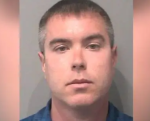(INDIANAPOLIS) — Indiana Chief Justice Loretta Rush is praising how Indiana courts adjusted
operations to meet the needs of the pandemic.
Like thousands of court hearings in the last year, Rush’s annual State of the Judiciary address
had to move online. Instead of addressing legislators and Governor Holcomb in the House
chamber, Rush posted her address to YouTube. She used the video format to share the stage with
18 county judges and magistrates who have made similar adjustments in their courtrooms.
Rush says the Supreme Court took the lead in buying laptops and hundreds of Zoom licenses to
allow judges to keep their courts operating and accessible despite needing to hold hearings
remotely. Not only did courts keep up with their caseloads, but Rush says the video hearings
found an audience online.
And Lake County Juvenile Court Judge Tom Stefaniak says a move made out of necessity actually
made his court run better. Instead of parents struggling to line up child care and transportation to
sit in the courtroom for half the day, they were able to participate on smartphones and spend only
the time needed for the hearing itself. judges acted quickly to set up Zoom accounts to keep
courts operating and accessible.
When courts did return to in-person hearings, they were able to take steps to keep courtrooms
sanitized and socially distanced. Vanderburgh County used federal relief money to move jury
selection and courts with high numbers of daily cases to the nearby convention center.
The Supreme Court itself has held all oral arguments remotely for 13 months. Rush
says she’s “thrilled” the Supreme Court will be able to resume in-person hearings later this month.
Rush says the coronavirus pandemic underscored the need for some longstanding court priorities.
She notes the pandemic has worsened some addiction and mental-health issues, and says the
state needs to expand the use of its more than 100 problem-solving courts designed to find
constructive alternatives to traditional criminal justice. And she’s renewing a push for reforming
pretrial proceedings, steering defendants to drug treatment instead of jail and developing a data-
based system to help judges set appropriate bail.












